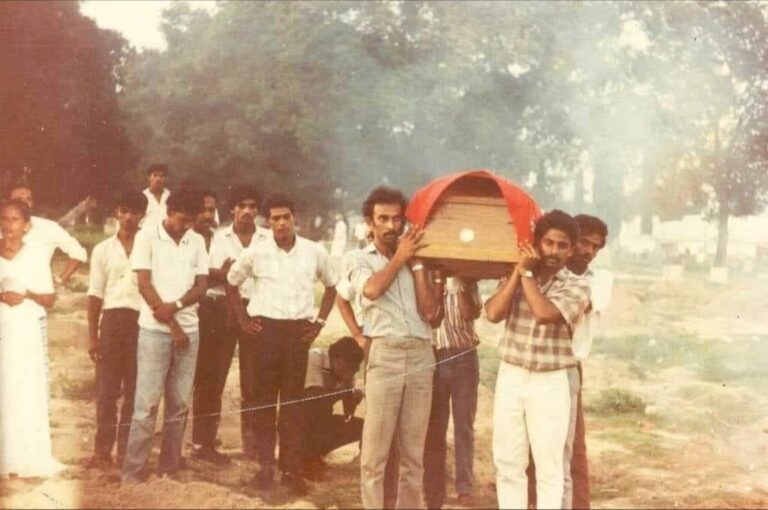Dark Side of SL Universities..!
Did you know that ragging also known as hazing is making headlines very often in Sri Lanka’s universities?
Ranjana Senanayake.

https://encrypted-tbn0.gstatic.com/images?q=tbn:ANd9GcS4R-OfflbWcpI5BlUSqC2-VJqWVspcfjE_gA&s
It’s heartbreaking. Recently, a university student in Sri Lanka tragically ended their life because they couldn’t bear the mental abuse of ragging. In another case, a female student reportedly attempted suicide due to the severe pressure from this practice. These aren’t isolated incidents—they’ve sparked renewed conversations about ragging on campuses, and it’s time we talk about it too.
Ragging and bullying aren’t just something that happens in universities—it happens in schools, vocational colleges, military units, and even workplaces. And while it’s found across South Asia, the recent focus in Sri Lanka’s universities makes them a critical place to start addressing the problem.
why do they carry out ragging and bullying?
So, what makes people carry out ragging? Often those who subject newcomers to these actions come from privileged backgrounds—someone who speaks fluently in English, dresses in a way that shows wealth or status. Their behavior seem to be rooting in envy, social anxiety, or wanting attention and dominance. They sometimes see their seniors as threating sophisticated—leading them to lash out.
There are also chilling group rituals involved. Forcing freshers to wear torn clothes, to stand barefoot, to shave their heads—these are all acts meant to humiliate. Some even replace signature shoes with cheap slippers or swear allegiance to a certain identity, mocking diversity and projecting superiority. It’s tribal, but incredibly harmful.
What do you think happens to those who go through this? They’re stripped of dignity—a form of psychological torture. Imagine being ordered to smoke unfiltered cigarettes with a partner, or worse, to perform sexual acts with strangers in front of others. These are not pranks—they are violations. These practices ignore consent, gender rights, mental well-being.
As a dangerous practice.
Take the horrifying “bench press” hazing: a student has to lie beneath a table, with their genitals lodged inside it, while others slam doors or kick for intimidation. Obviously, this is incomprehensible and dehumanizing.
Or the “watch-they-wet-the-plants” hazing in agricultural faculties—where freshers forced to stand naked in freezing water tanks at 3 a.m., barefoot on cold concrete, then ordered to leap across rough terrain without any consideration for their safety or mental state.
And the worst part? After enduring all this, they aren’t free. Come the next year, as seniors, survivors often feel pressured to pass the abuse on, like a twisted cycle: victims becoming perpetrators to avoid loneliness or to gain acceptance.

But here’s some hope: universities like Peradeniya, Moratuwa, and Ruhuna have seen reduced ragging, thanks to faculty involvement and anti-ragging groups. However, in places like Sabaragamuwa, it’s still particularly rampant. The good news? Professors are stepping in—sometimes even sharing meals with new students or checking on them during ragging season, and student unions getting involved helps too.
It’s important to note: opinions that ragging is just harmless fun, or that “real oppression” comes from lacking facilities or poor governance—these misunderstand the depth of harm it causes. In fact, Ragging is often deadly, and comparing it to academic challenges diminishes the trauma it inflicts.
Ultimately, ragging is not about politics or student ideology—it’s about power, shame, control. It’s a throwback to archaic tribal rituals wearing the guise of “university culture.” And unless we’re all willing to call it out—faculty, students, government—it will continue to tear lives apart.
To stop it, universities need serious, coordinated action: updated legal policies, strict enforcement, counseling services, compulsory sexual education from school onwards, English-medium readiness, and career-aligned education. Convincing students that ragging isn’t a right or a rite—but a threat to everyone’s future—is essential.

image source-https://sinhala.lankanewsweb.net/wp-content/uploads/2024/03/%E0%B6%95%E0%B6%95.jpg
So what next? Would you stand by, or speak up? We all deserve education free from fear—and the students of Sri Lanka deserve better.










One Comment